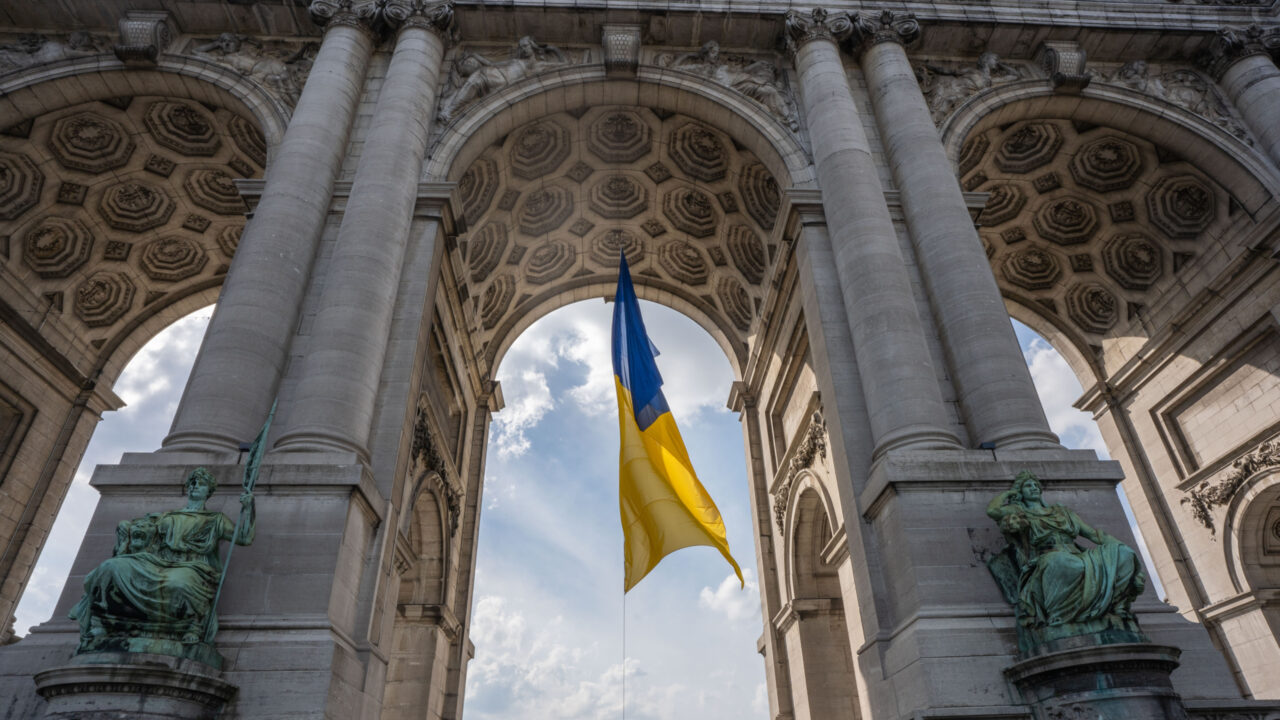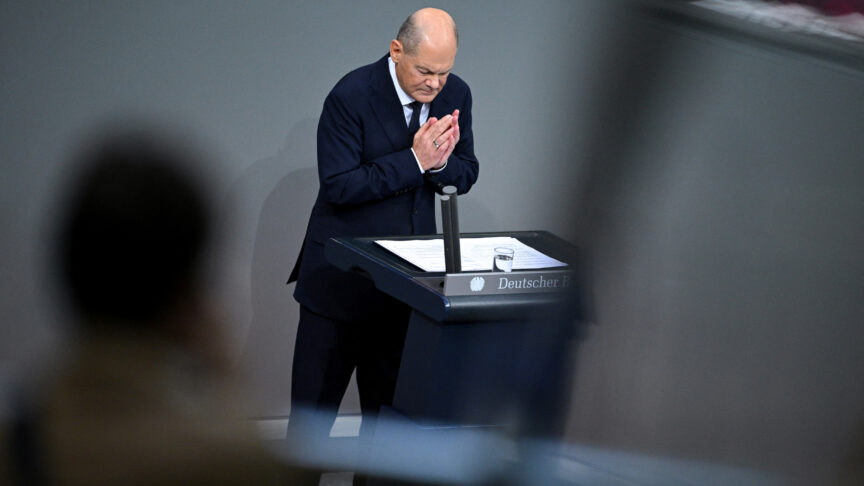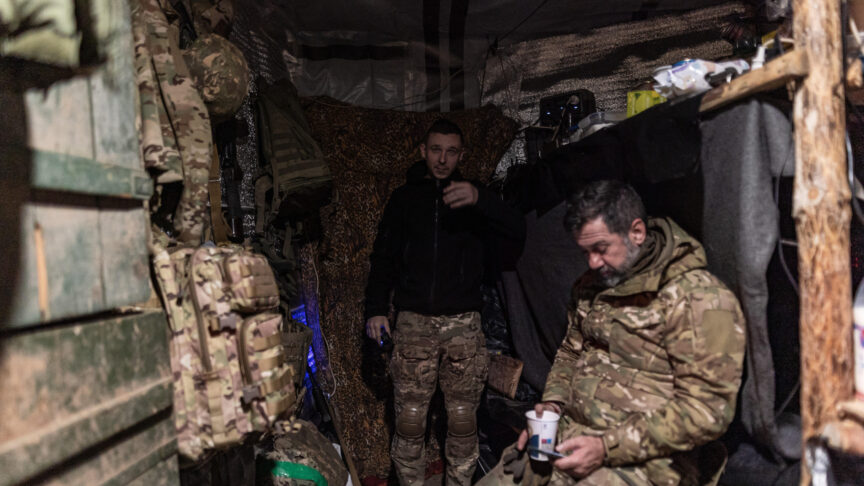Ukraine, Europe, and the power of association: A new way to help aspiring EU states
A new compact could allow Ukraine, Balkans states and others to move closer to the EU and drive reform more powerfully than the current rigid rules
Europe celebrated Europe day this week – while the continent is at war. The European Union is fighting in a very EU way, by way of its economy and market. It is using all the instruments available to it to wage massive economic warfare to stop Russia winning.
Europeans have mixed feelings about how far EU membership protects them in today’s international environment. In January 2022, a public opinion poll of over 5,000 citizens conducted for ECFR asked whether they trusted the EU or NATO to protect EU citizens’ interests in the event of a Russian invasion of Ukraine. In a majority of countries, respondents placed more trust in NATO than in the EU.
One country that has unequivocal feelings on the subject is one that does not currently enjoy NATO protection. Ukraine applied for membership of the EU within days of Russia attacking. On receipt of the membership questionnaire during European Commission president Ursula von der Leyen’s visit to Kyiv on 8 April, Volodymyr Zelensky’s government turned it around in lightning-fast time. On 9 May, it submitted the second part of the questionnaire. The Commission has promised a response as soon as possible, but the message from the European Council meeting on 24 March – which acknowledged Ukraine’s European “aspirations” and invited the Commission to submit its opinion – suggests that membership will still be a matter of years, not weeks and months.
For Ukraine, closeness to the EU is as vital as military support from the West. Despite Moscow’s narrative of encirclement by NATO, it is important to remember that it was Ukraine’s decision to sign an association agreement with the EU – rather than any application for NATO membership – which ended with Russia annexing Crimea and starting the war in Donbas in 2014.
EU public opinion is not opposed to deeper integration with Ukraine. Indeed, for the moment at least, it remains in favour. The Spring Eurobarometer 2022 shows that 66 per cent of EU citizens agree that Ukraine should join while 71 per cent believe that Ukraine is part of the European family.
The stumbling block lies with EU policymakers and the rules that govern enlargement. The Copenhagen criteria, which define eligibility to join, are mostly economic in nature. A war-torn country such as Ukraine is hardly likely to be able meet these – which means that the EU is effectively allowing Moscow to decide its future and that of Ukraine.
A turbo-accession in which Ukraine is allowed in without meeting the Copenhagen criteria would be damaging to the EU. It would also be unfair to the Balkans states, which have been waiting many years for membership. Currently, a country can only become a full EU member state or a candidate country. To become a candidate country, it needs to apply for membership, and the EU would have to accept it as a candidate for it to start accession negotiations. But these steps can take years, and may even fail to materialise. As the cases of the Balkans and Turkey show, this is a sort of limbo that can lead to nowhere. It is an “either, or” approach: either one is a member or one is not.
But the world changed when Russia invaded Ukraine. What Europe needs now is creative thinking that matches this new moment. The answer is a form of associate membership. As early as 2002, Commission president Romano Prodi hinted at this when he spoke of “sharing everything with the Union but the institutions”. French president Emmanuel Macron’s speech to the European Parliament on 9 May set out the idea of a European political community beyond the EU. These ideas’ time has come; the challenge now is how to take them forward.
The next step is to create a new layer of membership, or a compact, with countries that are committed to carrying out the reforms necessary for EU membership. Though Ukrainians clearly identify with the European project, in the shorter term Ukraine needs three things: increased security; an economic reconstruction plan; and the confirmation of its Western and European anchoring.
Associate members could sit in some Council formations, but without a vote. They could send observers to some European Parliament committees, or join European Council sessions at the end of every meeting to show they are part of the European family. The same could be applied to the European Commission, to which they could also send observers.
The goal of such measures would be to break the rigid distinction between being completely in or completely out of the EU. It will also provide the EU with new leverage to push for reforms in these countries, including more influence over rule-of-law issues and other matters that past enlargement policies have been inadequate to address. Should they backslide on human rights, associate members could easily be denied their invitations to Council formations and other meetings. Importantly, this proposal would also apply to states in the Balkans, a region once also ravaged by war from which it is yet to fully recover.
Associate membership would offer Ukraine some immediate certainty over what is happening next on its European journey.
In the present moment, such a prospect would offer Ukraine some immediate certainty over what is happening next on its European journey. At the same time it would demonstrate to Russia that the EU will not simply bow to pressure to leave Ukraine out in the cold. The neutrality that Russia had imposed on Ukraine even prior to the war was perhaps feasible in the world of supposedly rational leaders that existed before 24 February 2022. But now that Putin has revealed what he is truly capable of, the EU should no longer countenance such an option.
When the European Council meets at the end of June, this should be the offer it makes. This would be a powerful statement, and would stand in real contrast to issuing an anaemic response about how it will take time to work through the Ukrainian application. This too would send a clear message to Putin: that the stakes are different now. Any attempts by Russia or any other actor to take new territory after the compact is implemented would be considered in the same way for associate countries as for members.
More broadly, as the EU prepares a sixth sanctions packages, with the inclusion of oil measures, it appears that member states are reaching the limits of their cohesion with this tool. As well as restrengthening resolve among members, a new EU affiliation may be a form of support to Ukraine and its neighbours – Moldova and Georgia, which are also feeling the Russian threat – on which member states can agree, and which could change Putin’s calculations about the next phase of the war.
The European Council on Foreign Relations does not take collective positions. ECFR publications only represent the views of their individual authors.



